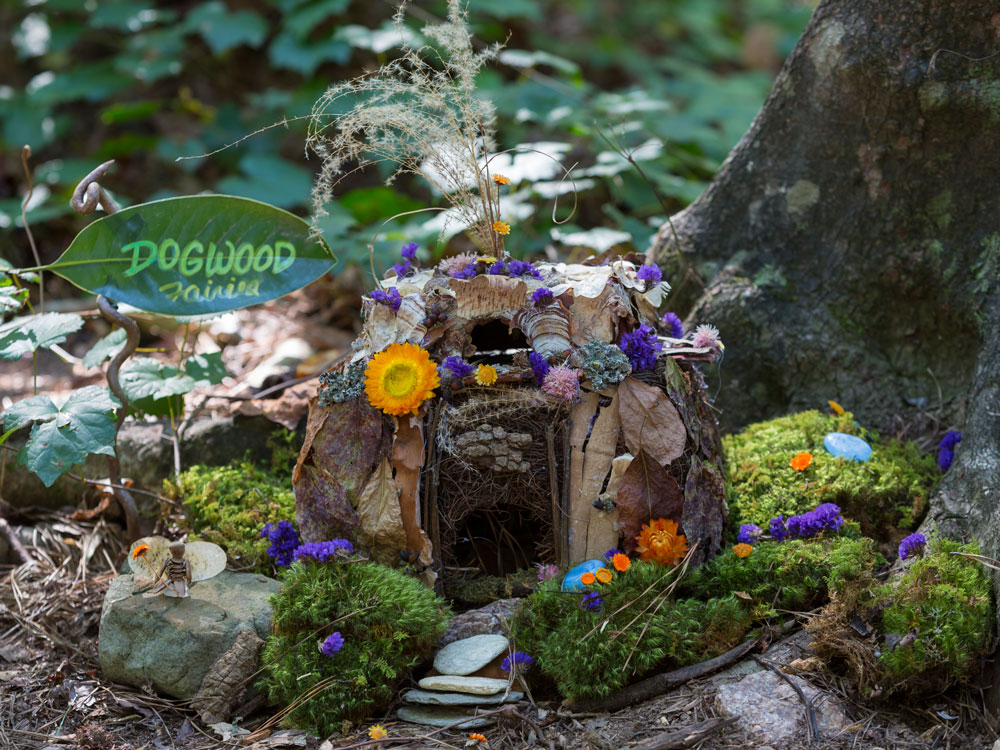See the Magic of Fairies in the Garden
Atlanta, GA – Skyland Trail, a nonprofit mental health treatment organization, will participate in the 11th annual Fairies in the Garden event at Woodlands Garden in Decatur, Georgia. Adult and teen clients participating in horticultural therapy groups as part of the residential treatment programs at Skyland Trail will use natural materials like bark, twigs, branches, leaves, and berries to create intricate, artistic “fairy” homes. The free, family-friendly, and ADA-accessible Fairies in the Garden event will be open to the public during daylight hours beginning Saturday, October 7, through Saturday, October 21, 2023.
This year, Fairies in the Garden will feature 12 unique fairy home installations throughout the eight-acre forest. A map detailing the locations and names of each installation will be available online or on location at Woodlands Garden to help guide attendees through the exhibit. Clients of Skyland Trail and Hillside Atlanta, another nonprofit mental health treatment organization, will create and place fairy homes throughout the gardens.
“Our clients and staff have been hard at work creating some whimsical fairy homes,” said Shelley Danser, CTRS, Adjunctive Therapies and Education Director. “This annual event is a great opportunity for clients to showcase their creativity, connect with nature through mindfulness techniques, and utilize the horticultural skills they have gained while in treatment at Skyland Trail.”

About Fairies in the Garden
Dates: Saturday, October 7–Saturday, October 21, 2023
Time: Exhibit is open during daylight hours
Location: Woodlands Garden, 932 Scott Boulevard, Decatur, GA 30030
Cost: Free. Donations are welcome.
Parking: Limited parking at Woodlands Garden is available. Off-site parking options are available at Westchester Elementary on weekends and on Maediris Drive across from the Decatur YMCA.
Horticultural therapy is an integrated component of residential mental health treatment programs for adults and teens at Skyland Trail in Atlanta. Expressive therapies, such as horticultural, art, and music therapy, help clients explore activities that are fun and engaging, build confidence and social skills, offer a respite from thinking about mental illness, and provide a connection to the community.
FIG Map 2023 Web